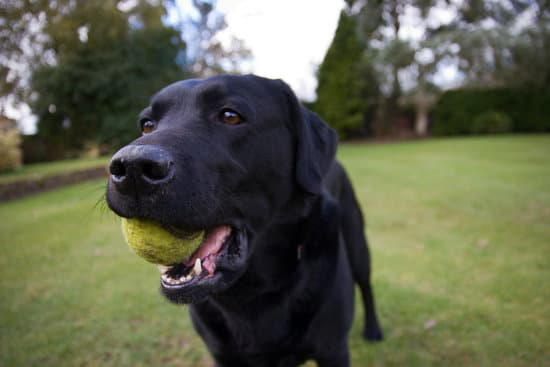
Possession, so they say, is nine-tenths of the law, and this law is well understood by dogs.
Pedro, my daughter’s gregarious two-year-old black lab retriever, is a full member of the family, but he’s 100 percent dog, which means not only does he claim his space, but also his possessions. As to possessions, he has few, but among them are cherished objects he can fetch: a squeeze bulb from an old turkey baster, a chewed-up tennis ball, and a chewable yellow ring of heavy rubber designed for tossing. Our granddaughter, Isabelle, now 13 months old, has watched Pedro play fetch for her entire life, and during our last visit I realized that Pedro has taught her all about possession.
Infants naturally progress from selflessness towards self, and with awareness of self arises the recognition of other. As external objects are recognized and as dexterity improves, these objects are then reintegrated into a developing internal brain/body map of self, which flexibly extends and contracts as needs and desires require. As awareness grows, a spoon becomes an extension of the hand, and any object possessed – even temporarily – can be used as a tool. Isabelle is now excitedly playing with the world, identifying objects and determining the ways in which they can be put to use by her brain/body map
From watching Pedro, Isabelle has learned that objects can be possessed and released, Pedro’s greatest passion. He will repeatedly chase a tennis ball I toss across the yard, return it and drop it at my feet – unless I reach for it. If I attempt to take it from him, he sets himself up and we begin a tug of war, which he always wins. But he also understands that in order for the fetch game to go on, he must release the ball, and so he always does.
Observant and intelligent, Isabelle totally gets it. Accordingly, she’ll play fetch with Pedro as best she can, which means releasing the ball and letting it roll away a foot or two. But her favorite game is to play possess and release with other people. In some perfectly reasonable way, she now fully understands that humans like to possess objects, just like Pedro. If she can get her hands on my wife’s cell phone, she holds it tightly, walks a few feet away and coyly looks over her shoulder with a small smile as if to say, “I have fetched what you possessed, and now I possess it.”
Identifying an object as someone else’s possession is in and of itself a fairly sophisticated mental construct; knowing that an object can be stealthily extracted from the possessive brain/body map of someone else is yet a higher order of sophistication. Thus it is that clever Pedro swipes Isabelle’s favorite rubber ducky from time to time. To Isabelle, the fetch and release game now extends to any and all objects. And more – she also understands that objects she releases, such as green beans dropped over the edge of her high-chair food tray, are fair game for others to possess, specifically Pedro. Not only possession and release she understands, but gravity, as well!
It needs to be said that, though our granddaughter Isabelle is obviously brilliant and a genius, we owe a debt of gratitude to her first teacher, Pedro.